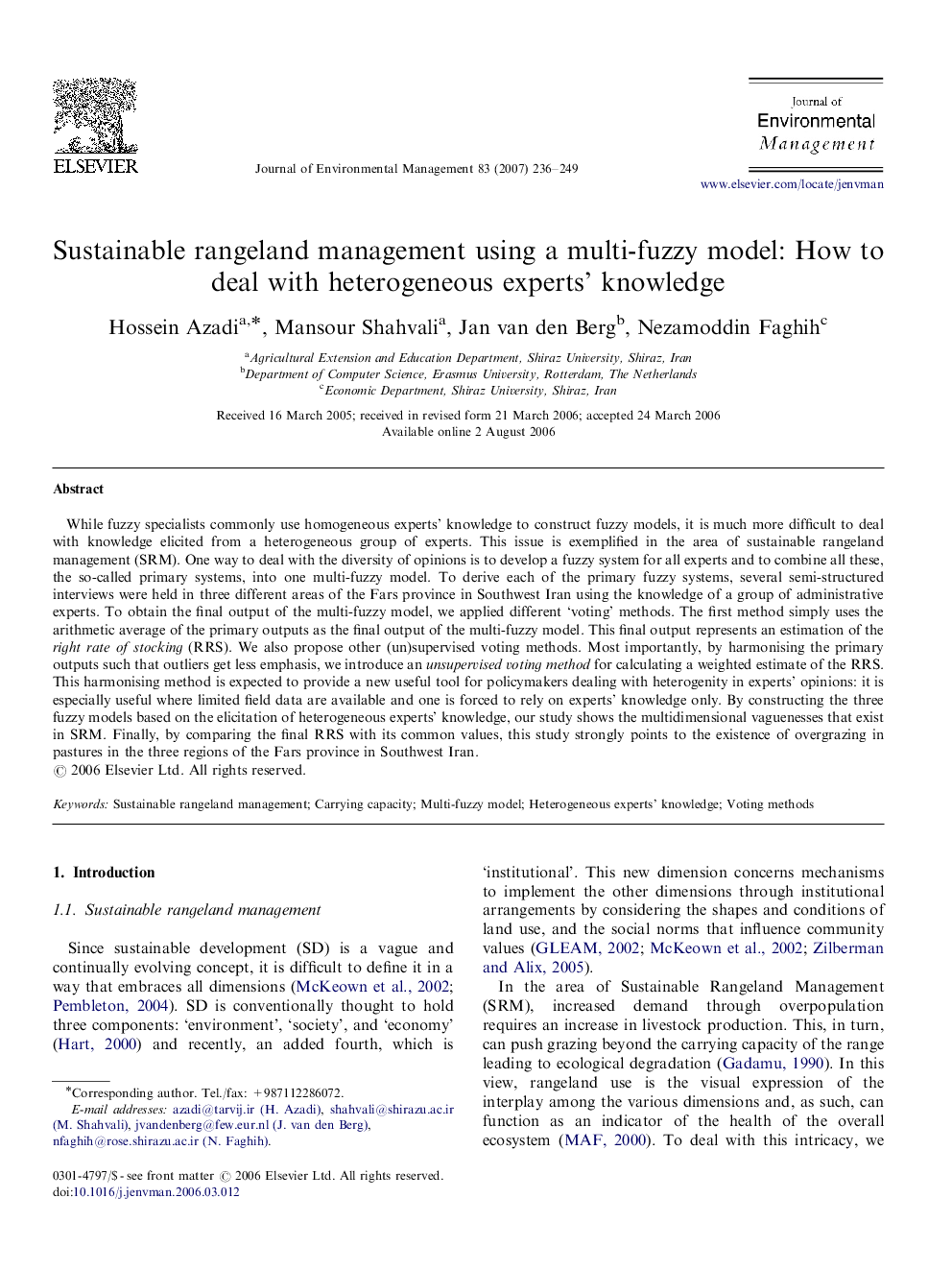| Article ID | Journal | Published Year | Pages | File Type |
|---|---|---|---|---|
| 1058773 | Journal of Environmental Management | 2007 | 14 Pages |
While fuzzy specialists commonly use homogeneous experts’ knowledge to construct fuzzy models, it is much more difficult to deal with knowledge elicited from a heterogeneous group of experts. This issue is exemplified in the area of sustainable rangeland management (SRM). One way to deal with the diversity of opinions is to develop a fuzzy system for all experts and to combine all these, the so-called primary systems, into one multi-fuzzy model. To derive each of the primary fuzzy systems, several semi-structured interviews were held in three different areas of the Fars province in Southwest Iran using the knowledge of a group of administrative experts. To obtain the final output of the multi-fuzzy model, we applied different ‘voting’ methods. The first method simply uses the arithmetic average of the primary outputs as the final output of the multi-fuzzy model. This final output represents an estimation of the right rate of stocking (RRS). We also propose other (un)supervised voting methods. Most importantly, by harmonising the primary outputs such that outliers get less emphasis, we introduce an unsupervised voting method for calculating a weighted estimate of the RRS. This harmonising method is expected to provide a new useful tool for policymakers dealing with heterogenity in experts’ opinions: it is especially useful where limited field data are available and one is forced to rely on experts’ knowledge only. By constructing the three fuzzy models based on the elicitation of heterogeneous experts’ knowledge, our study shows the multidimensional vaguenesses that exist in SRM. Finally, by comparing the final RRS with its common values, this study strongly points to the existence of overgrazing in pastures in the three regions of the Fars province in Southwest Iran.
